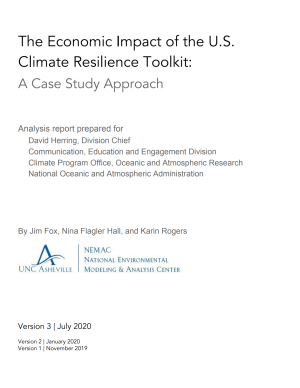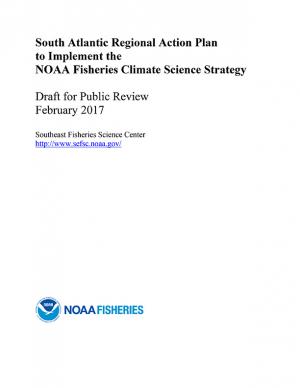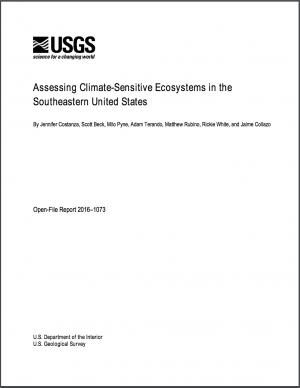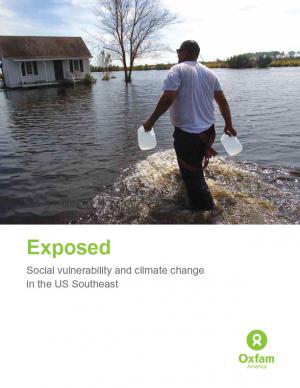A case study approach to calculating the economic impact of the U.S. Climate Resilience Toolkit.
Access a range of climate-related reports issued by government agencies and scientific organizations. Browse the reports listed below, or filter by scope, content, or focus in the boxes above. To expand your results, click the Clear Filters link.
This draft Regional Action Plan in support of NOAA Fisheries Climate Science Strategy helps communicate a regional vision for climate-related science in the South Atlantic, providing a framework for scientists and managers to prioritize and accomplish research on climate-related impacts to marine and coastal ecosystems. It promotes scientists working with partners and the management community to construct management approaches that ensure the development of science-based strategies to sustain marine resources and resource-dependent coastal communities in a changing climate. Highlights include establishing a NOAA Fisheries South Atlantic Climate Science Team, expanding scientific expertise and partnerships, conducting vulnerability assessments for South Atlantic species, and drafting a South Atlantic Ecosystem Status Report. The draft was available for public comment through March 24, 2017; the Plan will be finalized in summer 2017.
Climate change impacts ecosystems in many ways, from effects on species to phenology to wildfire dynamics. Assessing the potential vulnerability of ecosystems to future changes in climate is an important first step in prioritizing and planning for conservation. Although assessments of climate change vulnerability commonly are done for species, fewer have been done for ecosystems. To aid regional conservation planning efforts, this report assesses climate change vulnerability for ecosystems in the Southeastern United States and Caribbean.
Historically, studies about climate hazards and social vulnerability have been conducted in separate silos. The Social Vulnerability Index (SoVI) is the first study of its kind to examine both the potential impact of natural hazards and which populations are most likely to be negatively affected. This research, commissioned by Oxfam America, includes a series of layered maps that depict social and climate change-related hazard vulnerability. The maps assist in identifying hotspots in the U.S. Southeast, which are at significant risk in the face of four particular climate change-related hazards: drought, flooding, hurricane force winds, and sea level rise. The specific region of focus is the 13-state region of the US Southeast: Alabama, Arkansas, Florida, Georgia, Kentucky, Louisiana, Maryland, Mississippi, North Carolina, South Carolina, Tennessee, Texas, and Virginia. Roughly 80 percent of all U.S. counties that experience persistent poverty (defined as a county in which at least 20 percent of the population experiences poverty for three decades or more) lie in this region.







